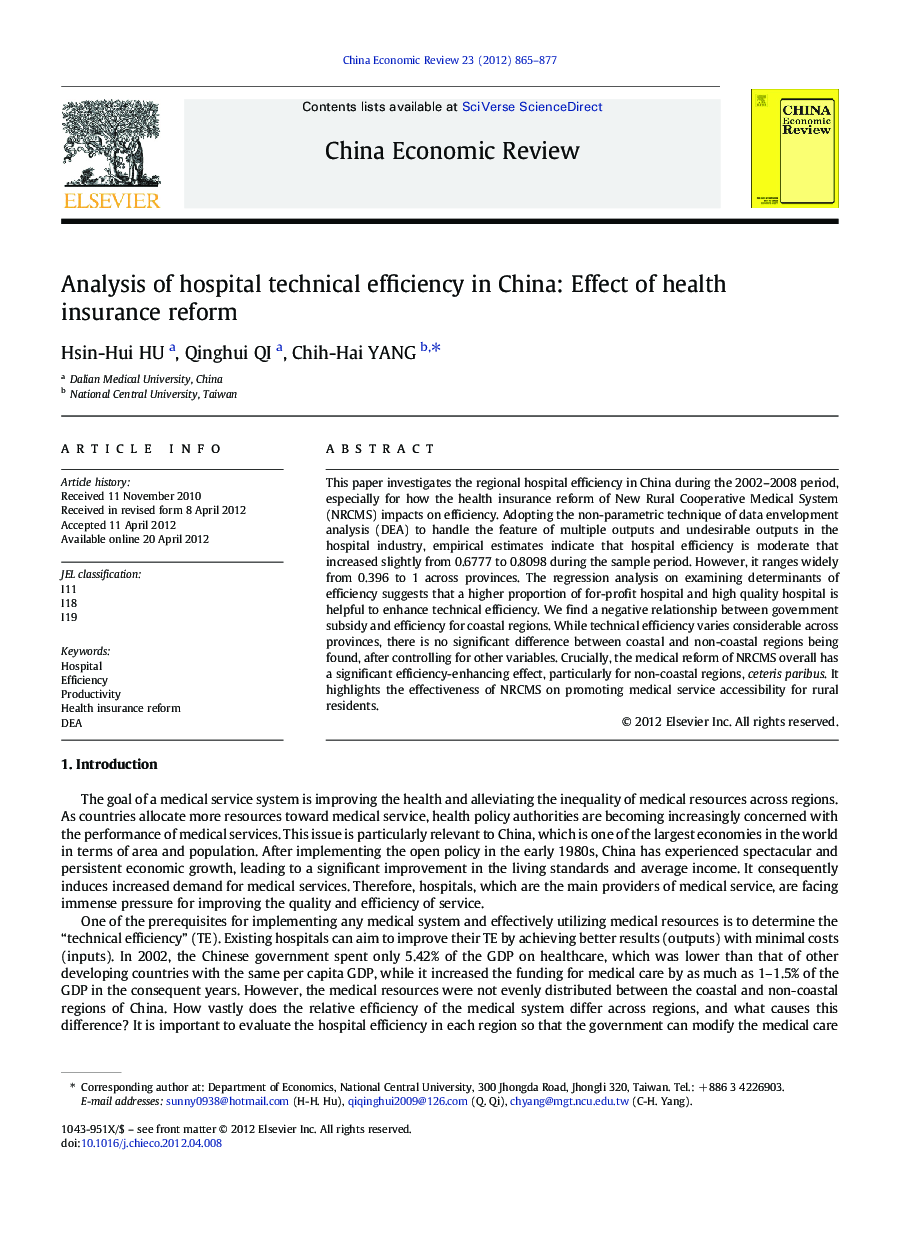| Article ID | Journal | Published Year | Pages | File Type |
|---|---|---|---|---|
| 5047740 | China Economic Review | 2012 | 13 Pages |
This paper investigates the regional hospital efficiency in China during the 2002-2008 period, especially for how the health insurance reform of New Rural Cooperative Medical System (NRCMS) impacts on efficiency. Adopting the non-parametric technique of data envelopment analysis (DEA) to handle the feature of multiple outputs and undesirable outputs in the hospital industry, empirical estimates indicate that hospital efficiency is moderate that increased slightly from 0.6777 to 0.8098 during the sample period. However, it ranges widely from 0.396 to 1 across provinces. The regression analysis on examining determinants of efficiency suggests that a higher proportion of for-profit hospital and high quality hospital is helpful to enhance technical efficiency. We find a negative relationship between government subsidy and efficiency for coastal regions. While technical efficiency varies considerable across provinces, there is no significant difference between coastal and non-coastal regions being found, after controlling for other variables. Crucially, the medical reform of NRCMS overall has a significant efficiency-enhancing effect, particularly for non-coastal regions, ceteris paribus. It highlights the effectiveness of NRCMS on promoting medical service accessibility for rural residents.
⺠We assess whether NRCMS impacts on regional hospital in China. ⺠The DEA estimation finds moderate hospital efficiency, ranging 0.6777 to 0.8098. ⺠The ratio of for-profit/high quality hospital is positively related to efficiency. ⺠Hospital efficiency is negatively related with government subsidy in coastal regions. ⺠NRCMS appears an efficiency-enhancing effect, particularly for non-coastal regions.
